I am a Caregiver: Resources

| WHAT IS IT: | Our lending libraries and resources learning materials are available for people living with dementia, families and friends, and health-care professionals. Library resources may be borrowed for 2 months. Resources are the printed documents from the Alzheimer Society of Canada and available to take as needed. |
|---|---|
| WHAT WILL I FIND THERE: | A wide variety of subjects including (but not limited to): brain health, how to live well with dementia, in-home safety, medications, stress management strategies, printed materials from the Alzheimer Society of Canada |
| WHAT IS IT: | The national level of the Alzheimer Society |
|---|---|
| WHAT WILL IF FIND THERE? | A large website filled with current information |
| LINK: | alzheimer.ca/en |
| SPECIFIC TOPICS (click the words): | I’m caring for a person living with dementia I have a friend or family member who lives with dementia What is dementia Other types of dementia Dementia numbers in Canada Research |
Another tax season is around the corner – time to start preparing your 2025 tax return. Filing an income tax return is essential to ensure you can apply for and receive the benefits and credits you are entitled to. This document serves as a guide for common tax credits and benefits that Canadian seniors, particularly those living with dementia and their care partners, may be eligible to claim.
| WHAT WILL I FIND THERE? | Websites that help people living with dementia, their families, caregivers and communities to recognize the risk of going missing, be prepared for incidents of going missing, and ensure that people with dementia can live safely in the community. |
|---|---|
| TOPICS: | location technology, safety in the home and community, preparing for emergencies |
| SPECIFIC TOPICS: | Finding Your Way – safety at home and in the community (homepage) Locating Technology Identification Form (when someone goes missing) |
| FOR: | Everyone |
|---|---|
| WHAT WILL I FIND THERE? | Websites where information on homecare, adult day programs, retirement homes and long term care can be found. These direct links may require some further “clicks” to find the specific information you are looking for. |
| TOPICS: | How to access these services and costs |
| LINKS: | Home and Community Care Support Services (formally the LHIN) – Click here Adult Day Program list and information: Haldimand, Norfolk, Brant, Burlington, Hamilton Oakville, Milton, Halton Hills Long Term Care Services General Information: Click Here Guide to Placement in Long Term Care Homes: Click Here Long Term Care Fee Structure: Click Here Long Term Care vs Retirement Homes: Click Here Moving to Long Term Care: Caregiver Stress Assessment Checklist: Click Here Long Term Care home (tour) checklist: Click Here Preparing for the day of the move into LTC: Click Here Alzheimer Society of Canada: Click Here |
| FOR: | Everyone |
|---|---|
| WHAT WILL I FIND THERE: | A variety of Provincial and Federal websites providing legal and financial information and resources |
| TOPICS: | Taxes, Power of Attorney forms, Capacity and Consent |
| LINKS: | Government Programs and Services: Welcome to the Benefits FinderDisability Tax Credit information (CRA): T2201 Medical Expenses (CRA): Medical Expenses Advanced Care Planning: video to explain what it is Resources and Tools(Advanced Care Planning in Canada) Power of Attorney – General Overview Power of Attorney – Personal Care Request a FREE Estate Planning Toolkit Advocacy Centre for the Elderly: Legal clinic for low income senior citizens Office of the Public Guardian and Trustee: General Information Capacity and Competency: Ministry of the Attorney General |
| FOR: | Persons supporting or living with a diagnosis of dementia and are under the age of 65 |
|---|---|
| WHAT WILL I FIND THERE: | Information unique to this population |
| TOPICS: | Overview, what to do if you have young onset dementia, information and resources |
| LINKS : | Alzheimer Society of Canada- Young Onset dementia YOD Resource Interactive Booklet Local Alzheimer Society support group |
| FOR: | People under the age of 18 who have a person living with dementia in their lives |
|---|---|
| WHAT WILL I FIND THERE: | Age appropriate information for this population |
| TOPICS: | Emotions, education and further resources |
| LINKS : | Emotions, education and further resources Helping children understand dementia (Alzheimer Society of Canada) Just for Kids information sheet (Alzheimer Society of Canada) Activity Book about Frontotemporal disease (Baycrest) Resource List for Teens (Alzheimer Society of Canada) Helping Teens understand Alzheimer’s disease (Alzheimer Society of Canada) |
POWERHOUSE
| FOR: | Powerhouse is evidence informed program developed to teach young caregivers life and personal development skills, provide opportunity to connect with other caregiving kids, bring caregiving families together, and reinforce self-care. |
|---|---|
| WHAT WILL I FIND THERE: | Powerhouse programs are delivered throughout the Haldimand, Norfolk and Niagara Regions and are geared towards ages 5 to 25 and have supported hundreds of young caregivers over the years. All of our Powerhouse services aim to build the resilience of young caregivers and their families.
Examples of Powerhouse Programs:
|
Caregiving Essentials
A free 8-week online course for people who are the family or informal caregivers of older adult(s). This online program will enable you to learn at your own pace – when it is most convenient for you.
Note: This is not a dementia-specific education curriculum.
To learn more about Caregiving Essentials, visit the McMaster Institute for Research on Aging website.
Caregiving Strategies
An online collection of educational resources that have been developed and/or curated for family and friend care partners who provide care and support to seniors experiencing frailty.
Note: This is not a dementia-specific education curriculum.
To learn more about Caregiving Strategies, visit the Provincial Geriatric Leadership Ontario website.
Resources For Care Partners
Online resources developed or curated by the Reitman Centre Enhancing Care Program Team to provide care partners with current and relevant information, education and instruction on managing day-to-day care of persons living with dementia.
Alzheimer Society of Canada: Communicating with people living with dementia
Understand how dementia affects communication and learn some useful tips and strategies for your conversations with people living with dementia as they progress through the stages of the disease.
Please click here to learn more.
Teepa Snow’s workshops help equip both formal and informal caregivers with related awareness, knowledge and some skill development in order to respond to a person living with dementia’s change in cognition and abilities in a way that is not hurtful or offensive. It helps those caring for people living with dementia to recognize that the individual is doing the best they can and that if something isn’t working, it’s the responsibility of the Care Partner to change their approach and behaviours toward the person with dementia. It will help us all understand that, with practice, common reactions to the person with dementia can become thoughtful responses that can improve quality of life for everyone involved.
For more information, email help@alzda.ca or contact your local office.
There are interviews with researchers, authors, advocates, health professionals, and others who are contributing to improving the lives of people with dementia. The guests are experts in their own lived experience or in a select field relevant to the dementia experience.
The podcast is a community-based initiative. A volunteer Editorial Board contributes by identifying topics for episodes, and potential guests and several members also serve as guest hosts. They help to touch upon the many ways in which dementia is experienced and the diverse ways people respond and adapt.
Ontario Caregiver Organization: One Point of Contact for Caregivers
The Ontario Caregiver Organization (OCO) exists to support caregivers by being their one point of access to information, so they have what they need to be successful in their role. Working collaboratively with caregivers, healthcare providers and other organizations, OCO draws on the variety of work that is currently being done to ease caregiver burnout and improve the caregiving experience. Our programs and services are available, free of charge, to caregivers across the province.
24/7 Ontario Caregiver Helpline & Live Chat
SCALE Program (Supporting Caregiver Awareness, Learning and Empowerment)
Take the time to care for yourself. For more information, please visit www.ontariocaregiver.ca
The University of Tasmania, Wicking Dementia Research & Education Centre offers an online learning opportunity called, Understanding Dementia. It offers
This is a Massive Open Online Course (MOOC), offering university-quality education about the latest in dementia research and care. This free course provides an opportunity to engage with the perspectives of an international community, without requiring exams or assignments.
Visit the Wicking Dementia Centre website at: https://www.utas.edu.au/wicking/understanding-dementia




